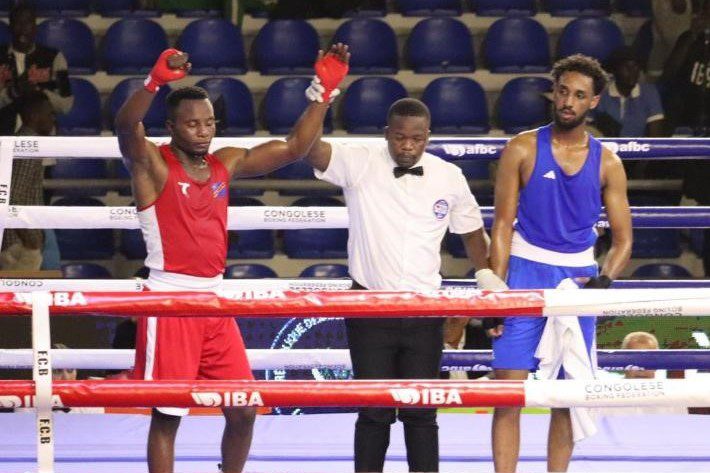By Chris Totobela
Local boxing is improving every year and our boxers are holding their own against the country’s best.
However, it has been noticed lately that a lot of talented boxers are falling by the way side, and we spoke to one of the top local boxing officials, Simnikiwe Mpati, who serves as a commissioner for the Sarah Baartman district and the Eastern Cape province, and who shared crucial information that can be attributed to the number of boxers moving away from the sport.
He mentioned that there are a lot of factors that could be attributed to this. “I think the major problem that has caused a lot of our boxers, especially females, to stop boxing is the law that was passed a long time ago that prohibits boxers who have tested positive for HIV from taking part in the sport. This has left many boxers stranded and frustrated as for many of them boxing is not just a sport but a way out of poverty.”
Mpati also mentioned that this law was passed a long time ago and that the ways and means of dealing with the virus have changed and improved. “I think health experts need to be brought on board and advise where possible as a lot of things regarding this virus have evolved.” Speaking to Grocott’s Mail, a 25-year-old Makhanda female boxer who was stopped from taking part in boxing a few years ago after she tested positive, shared her views on this law.
“It is very frustrating and unfair to me. I was in the prime of my career when I was scrapped off the roll and I felt destroyed as I faced the dreaded possibility of no longer being able to enter the ring again in my entire life. I was shattered and I think the authorities who took this decision could have considered other potions other than removing us from the sport. I believe that when you take your treatment regularly, the viral load decreases and the chances of infecting your opponent become very low. I appeal to all those in charge to reconsider this law and also go to the relevant people in the health sector to find out more about the transmission of this virus and also look at the option of testing boxers before each and every fight to see if the viral load has increased or not.”
This matter is really frustrating local boxers who are also faced with the reality of the high rate of unemployment in Makhanda.
Grocott’s Maili spoke to one of the top International Boxing Association’s officials based in the Eastern Cape, Mazizandile Vumazonke, who has seen it all in the sport of boxing.
Vumazonke is currently the IBA’s two-star referee, international scoring machine operator and Sanabo’s referee/judge instructor. He has also officiated in many African and European countries and has organised many workshops and courses to equip boxers, officials and administrators. He recently returned from officiating in the Africa Elite Championships held in Kinshasa in DRC.
Vumazonke explained this IBA law to Grocott’s Mail. “This law is aimed at preventing the spread of the virus and as we know that in boxing there is also blood. This is a law that is applied all over the world, not just in South Africa only and it applies to both male and female boxers. Boxers clinch even when one of them has a bloody nose or cut and the chances of infecting each other become very high. This law was passed to protect the boxers.
“We do have programmes that are designed to equip the affected boxers where they are trained as ring officials, referees, judges or even trained as administrators and this will help them continue with the sport of boxing but in a different capacity.”
Vumazonke also urged boxers to try and follow a healthy and clean lifestyle and be disciplined at all times. “Boxing requires a lot of discipline and young people need to be careful when choosing friends and to try and not to give in to the pressure and bad influence of friends.”
Top local female referee, Bongi Mbangeli, shared her views as well. “I think the powers that be need to relook at this law, especially at amateur level where we hardly have any bloody battles.”
It is clear that the law has been there for a very long time and is unlikely to change.
Speaking to Grocott’s Mail, one of the senior professional nurses in Makhanda explained. “It has not yet been clinically proven that people who tested positive for HIV might not infect opponents when boxing. It is therefore a huge risk for now to allow them to fight, as boxing usually causes cuts through clashes of heads etc, and it also involves a lot of bleeding. I would advise that they do not participate in boxing until proven that there is no risk of transmission.”


